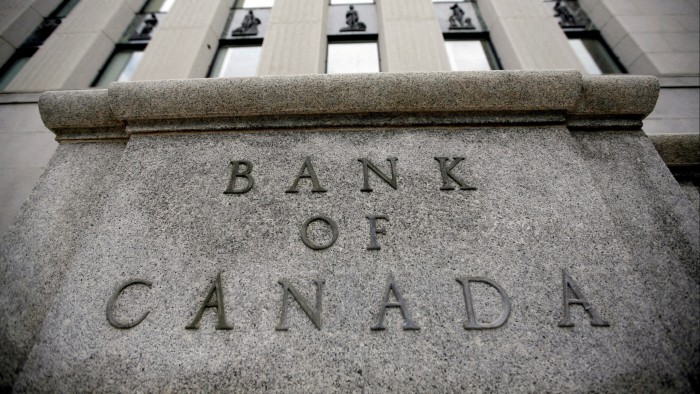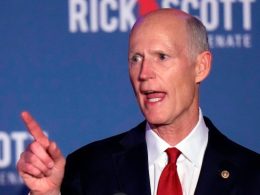Unlock the Editor’s Digest for free
Roula Khalaf, Editor of the FT, selects her favourite stories in this weekly newsletter.
The head of the Bank of Canada has warned Donald Trump’s plans to impose high tariffs on Canadian imports would have a “dramatic” impact on the country’s weakening economy, as rate-setters cut interest rates by half a percentage point for the second consecutive meeting.
Rate-setters lowered their benchmark rate to 3.25 per cent in an attempt to boost growth, but said they would assess “the need for further reductions in the policy rate one decision at a time”.
“Our decisions will be guided by incoming information and our assessment of the implications for the inflation outlook,” the central bank said on Wednesday following the decision.
The central bank has cut borrowing costs five times this year to combat a rise in unemployment and other economic weaknesses.
In his post-meeting press conference, governor Tiff Macklem acknowledged the US president-elect’s threat to impose 25 per cent tariffs on all Canadian imports was “highly disruptive” and “a major source of uncertainty”, though he added that “the reality is, we don’t know if they will be implemented”.
Macklem said the Bank was “looking at different scenarios” and “analysis to prepare” for potential tariffs.
“If those things happen, they will have a big impact on the Canadian economy and will dramatically impact our forecast, let’s hope that does not happen,” he said.
Economists believe borrowing costs are likely to fall further in Canada, especially if Trump rips up the free trade agreement between the US, its northern neighbour and Mexico.
Chris McHaney, head of investment management and strategy at Global X Investments Canada, said: “With recent tough talk on trade coming from south of the border, the market has increasingly priced in the probability that Canada will need another large cut.”
Nathan Janzen, an economist at the Royal Bank of Canada, said rate cuts had been the equivalent of the central bank “easing off the economy’s brakes rather than stepping on the gas”.
“Canada’s economic backdrop has yet to crumble in a way that would cause the Bank of Canada to panic, but it is also clear that interest rates are higher than they need to be for inflation to hold at the central bank’s 2 per cent target,” he said.
Despite the consecutive cuts meaning good news for homeowners in Canada, rising unemployment and low growth dominate a less than impressive outlook.
Canada’s official data agency last Friday reported the unemployment rate rose to 6.8 per cent, up from 6.5 per cent. At the end of November, Statistics Canada said the economy grew at an annualised rate of 1 per cent in the third quarter, with the expansion largely because of higher government spending.
Macklem said there were “mixed signals in the data”, but added the G7 economy was not shrinking.
“We’ve not seen widespread lay-offs, or widespread job losses typically seen in a recession,” he said. “We are not expecting a recession. Our baseline is that the economy is continuing to grow.”
Source link









